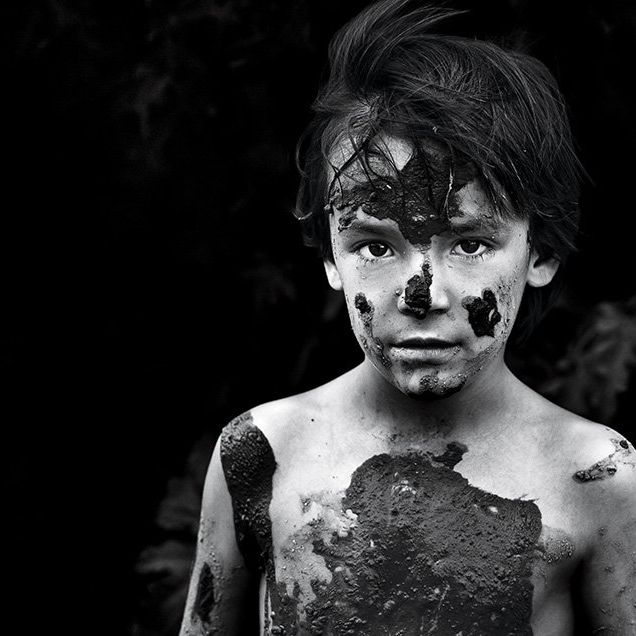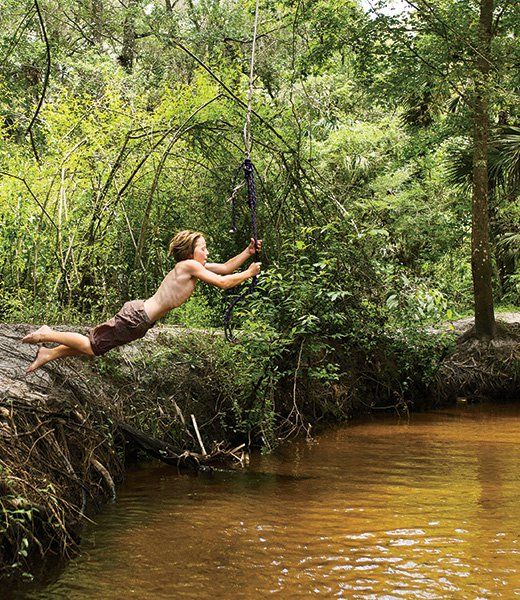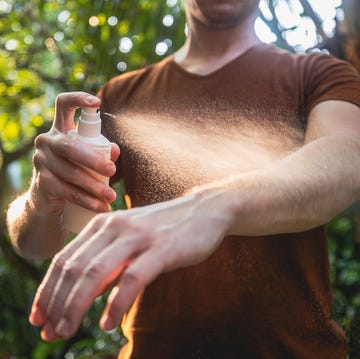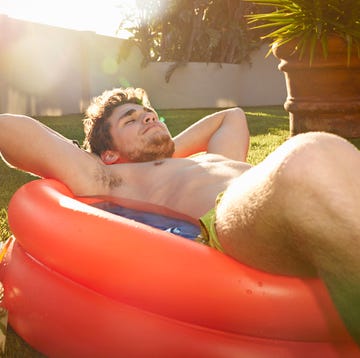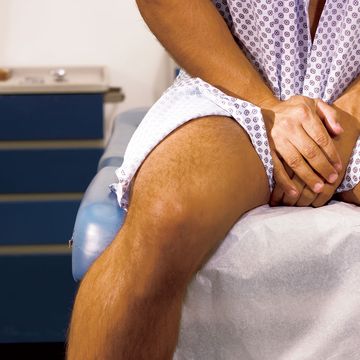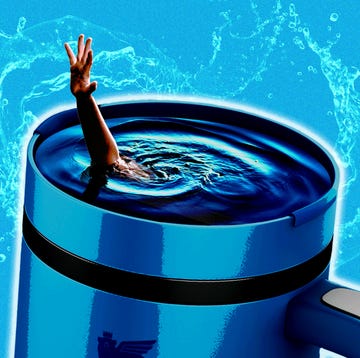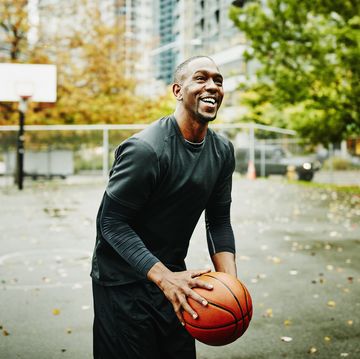Some of my favorite times in childhood were when I was outside catching things. I caught frogs. I caught fish. I caught snakes by the hundreds. I overturned logs and climbed trees. I explored. There must have been limits to my journeys—times I was supposed to be home, distances I wasn't supposed to exceed—but I don't recall them. Instead I remember only what I caught. Any childhood photo of me in which my feet are dry and I'm not holding a live animal was probably staged.
I was recently reminded of all this when my son's kindergarten class took a field trip to a local pond. I'm a biologist at North Carolina State University, so the teachers asked me to come along. To prepare, I loaded up the car with nets, rubber boots, binoculars, field guides, and a snake stick. In my enthusiasm, I forgot to pack lunch for me and my son.
When we pulled into the parking lot, I realized that I was the only one who'd brought a trunk full of gear. So as not to embarrass my son, I pulled out just one net, one guide, and one pair of binoculars. Reluctantly, I left the snake stick behind.
Each child was assigned a spot on the edge of the pond. One by one they were given a net, told to scoop out some muck and examine it, and then pass the net to the next child. It was a good strategy for getting kids to dip a toe into nature. And somehow everyone resisted going into the pond—except me.
I'd spotted a very large bullfrog just beyond where the kids were quietly gathering netfuls of nature. I couldn't resist. I left my son and carefully waded into the swamp and grabbed the frog. I got it just right.
My body tingled with the joy of the hunt. I held it up and returned to shore where everyone gathered around. I handed the frog to my son, and he held it out to the kids. Parents looked on, some anxiously. The frog let out a barbaric squeak. My son held it for a moment longer and then, satisfied, let it go.
Suddenly I realized that I was soaking wet and wondered whether I'd brought a towel to sit on in the car.
Now on one hand, that moment was glorious. A frog in the hand is worth, well, it is damn great. But on the other, it was a reminder that kids today have a relationship with nature that's far different than mine was. Every so often they may still get their hands on a big wild frog, but such experiences are far more rare and far more likely to be circumscribed by a parking lot, parents, and detailed rules of engagement.
This is a big change from not only my own childhood but also the experiences of children going back thousands of years. Kids have explored and grabbed stuff since the beginning of humankind. We may not have all the intel on the lives of hunter-gatherers living 10,000 years ago, but we can be certain that their children waded through muck and explored.
People are moving to urban areas where it's harder to be part of the wild. But the thing I'm most conscious of, as a father and as someone who has spent the past decade studying nature, is that this disconnect dramatically increases the odds that kids will get sick. It may even detract from our kids' ability to mature into happy, well-adjusted adults. A frog in the hand, as it turns out, may be a sort of microbial medicine.
There is some evidence that to increase your kids' odds of being allergy-free, they need to be exposed to many kinds of microbes. This exposure teaches their immune system which microbes are good, which are bad, and which are neither.
Billions of microbes live on your skin. They also live in your gut, mouth, and virtually everywhere else on your body. They form incredibly complex, interconnected communities, called microbiomes, that scientists like me are just beginning to understand and appreciate. Human beings rely on these microorganisms for their health and very existence.
But the shift to urban environments has caused some of these species to disappear. Their absence puts all of us—including, in some cases, our kids—at greater risk for allergies, asthma, inflammatory bowel disease, dementia, and other maladies.
Kids raised in rural environments rarely had autoimmune disorders or allergy-related conditions. In urban areas, these disorders are much more common. In fact, half the kids at the pond that day had some sort of food sensitivity or allergy.
We need to reconnect our kids with the microbes they need and, more generally, with the wild they need, however tiny that wild may be.
Some remedies are easy. For example, here are some of the things we do in my family.
When we wash our hands, we use soap and water only. We steer clear of antimicrobial gels, wipes, and clothing containing triclosan. Using products containing triclosan can impair your immune response because it will kill microbes across the board—the good bacteria as well as the pathogens.
We pick wild fruit. I've planted an urban orchard that my kids and the squirrels love. In some studies, children with access to a green space or backyard containing native plants have more diverse skin microbes and are less likely to develop allergies.
When we shop, we stay in the perimeter of the supermarket, where the fruits and vegetables are located.
We buy organic produce when we can—not because it's pesticide-free (it isn't always), but because the plants are more likely to have retained beneficial microbes.
We try to avoid sugar, which feeds the bad microbes, and eat live foods like yogurt, kimchi, and kefir. Live foods may or may not help gut microbes, but they certainly can't hurt.
We don't use antibiotics—which lay waste to many beneficial microbes—unless one of the kids really needs an antibiotic for a bacterial infection. (Antibiotics won't cure viral infections.) We also avoid meat produced using antibiotics. It can contain drug residue as well as antibiotic-resistant pathogens, which makes it especially dangerous for kids.
We let our kids chew their nails if the mood strikes. This practice, along with thumb sucking, has actually been shown to reduce certain allergy risks.
This is all based on the latest science. But the truth is, until we know more, the best thing for kids—in order to keep their minds going, instill a sense of adventure and wonder, and just maybe keep their little microbiomes healthy—is to get them out into nature, with the space and freedom to explore on their terms. Of course, exploring the big and wild is most awesome. But if that's not possible, a stinky urban pond with a bullfrog or even just a narrow band of trees will suffice.
A few weeks ago, my wife and I took our kids to the beach. We stayed at a friend's house that was separated from the water by a half dozen pine trees and some rocks. From that thin band of forest, the kids gathered sticks and vines and built a raft. They rolled dozens of logs, peeled off bark, twisted vines, dug through dirt, stacked rocks, and went up and down the shore gathering building material.
When it was all built to their satisfaction, they put the raft in the water and sat on it. It sank. They couldn't have been happier. Then they spent the rest of the day trying to make a net.
They did all this in a wild area far smaller than the one I explored as a child. And yet it was wild enough for them to imagine the world, to imagine an odyssey, to imagine a connection to our ancestors, and to collect some friendly microbes on which, in one way or another, their futures depend.
4 Ways to Boost Your Body's Good Bacteria
Unclean living can be a smart idea for everyone, not just kids. These unusual strategies may strengthen your microbiome.
Don't shower every day if you can get away with it. This may help protect your skin biome, which acts as a protective coating against pathogens.
Forgo antiperspirants on weekends or on days you can go without them. Believe it or not, your armpits harbor their own special microbial colonies.
Dry-brush instead of using toothpaste. The chemicals in most pastes disturb your oral biome, and research suggests that dry-brushing actually fights plaque more effectively. Skip the mouthwash, too, for the same reasons.
Walk barefoot through the grass. It not only feels great and relieves stress but also helps your foot microbes flourish. Keeping your dogs in shoes and socks all the time kills the good bugs and brings on the stinky ones.
Rob Dunn, Ph.D., is the author of The Wild Life of Our Bodies and The Man Who Touched His Own Heart.
